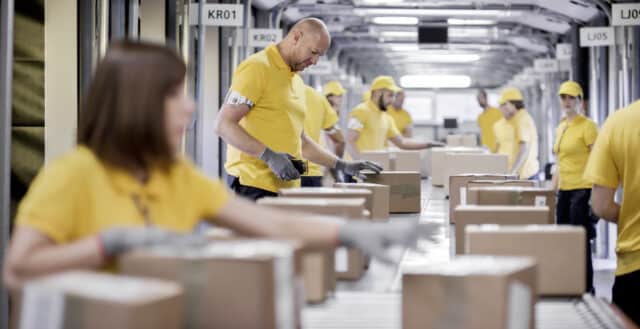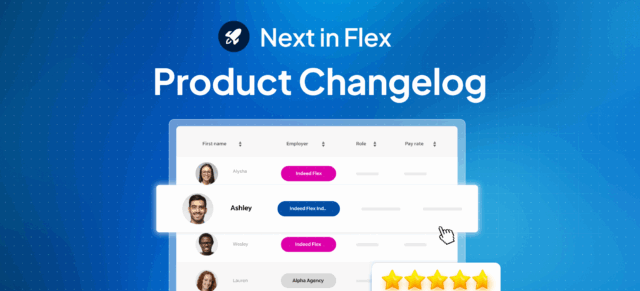
During the jobhunting process, it’s a ritual for job seekers to update their CV in the hope that they will stand out to potential employers. While revising a resume for new job opportunities, it doesn’t take long for questions and concerns to mount. Is the profile relevant to a range of different businesses? What information is most important to include? Are the references up-to-date and contactable? Plus, of course, is the application destined to be lost in a spam folder?
We’ve reached a point where many job seekers are choosing to steer away from sending out a CV to apply for jobs, as the concept is seen as outdated. Some might question moving away from such a fundamental part of the job-seeking process, but then again newspaper job adverts used to be integral to it. One of the key factors for the change is due to innovative technological advancements, but there are other factors.
So, why is the traditional CV fast becoming outdated?
1. The focus on experience over skills
In the past, many employers looked solely on experience over skills, for the reason that they would be assured that the individual would get the job done, with no need for further training. CVs tend to showcase the individual’s chronological employment history, so the employer can instantly look over the range of experience to gain insight into whether they would be a good fit for the position. However, in the current day and age, experience is no longer the be-all and end-all of the application process. Candidates are now being judged on their skills and ability, rather than what they have done previously. With this in mind, CVs don’t necessarily showcase the variety of a candidate’s abilities in the very best light.
2. Time-consuming
For both the employer and the candidate, the CV process is extremely time-consuming. Due to the advancements that are now being witnessed during hiring, the amount of time spent on CVs for both parties may become a thing of the past. Within a CV, applicants must try and remember every single job role they have ever taken on, with the exact details of their experiences, plus the added pressure to keep updating it on a regular basis. A CV may also need to be edited on various occasions to relate to each role they choose to apply for.
Similarly, employers are faced with approximately two pages of information they are forced to sift through to find the details they are looking for from each candidate and work out whether they are the correct fit. This isn’t the most pleasant of experiences when there are hundreds of applicants to browse through. In both cases, the time spent on CVs during hiring isn’t the most convenient of options. Nowadays, online profiles such as LinkedIn and Indeed Flex allow employers to connect with candidates based on the specific skillset they are drawn to, with no paperwork to read through or becoming bombarded with too much information.
3. A lack of employer verification
Although an individual may include a vast amount of experience on their CV, is there actually any proof that their statements are totally truthful? Unfortunately, no. Although many companies ask for one or two references from employers, the majority of the information remaining cannot be confirmed by the employer. According to The Guardian, over a third of job seekers exaggerate their CV in terms of qualifications and employment dates in the hope that they will tailor themselves to seem a better fit for the role they are applying for.
Without being able to check the claims, employers may select the completely wrong candidate for the job. This is where the correct technology comes in; which can verify a candidate’s claims and ensure that exaggerations are kept to a minimum. Indeed Flex, for example, is able to verify workers from different sectors when it comes to hiring, essentially offering businesses and jobseekers digitised, constantly updated CVs.
4. It is one-dimensional
Although CVs would be sent and employers with no contact until they were invited to interview, employers are now seeking communication before selecting individuals for job roles.
CVs are simply one-way communication, therefore, there is no room for feedback or further interaction between the two parties. If an employer wants to know more, they must send a formal email or make a telephone call which becomes an obstacle during the process, as it isn’t prompt. However, technological platforms allow for instant conversations via direct messenger, where questions can be asked before deciding whether the individual is a good fit for the role.
5. They’re very basic
Just a few years ago, CVs were the only tool candidates could use to prove they had the right skills and abilities for the job. Due to the vast amount of competition for jobs, employers are looking for so much more from applicants to prove their skillset; such as demonstrations and set tasks. A CV can only state the specific qualifications and experience an individual holds, rather than what they are able to achieve when prompted.
In conclusion
It might take some time for CVs to fully become a thing of the past, as they’re still so relied upon by employers and jobseekers unaware of the more convenient and verifiable options available.
Additionally, as innovative technology continues to transform the world of work, employers will finally tire of the limitations that come alongside the process of a CV application. To see how traditional working practices, such as employer-worker communications, timesheets and job descriptions have been modernised, check out our website and learn more about the future of work.








